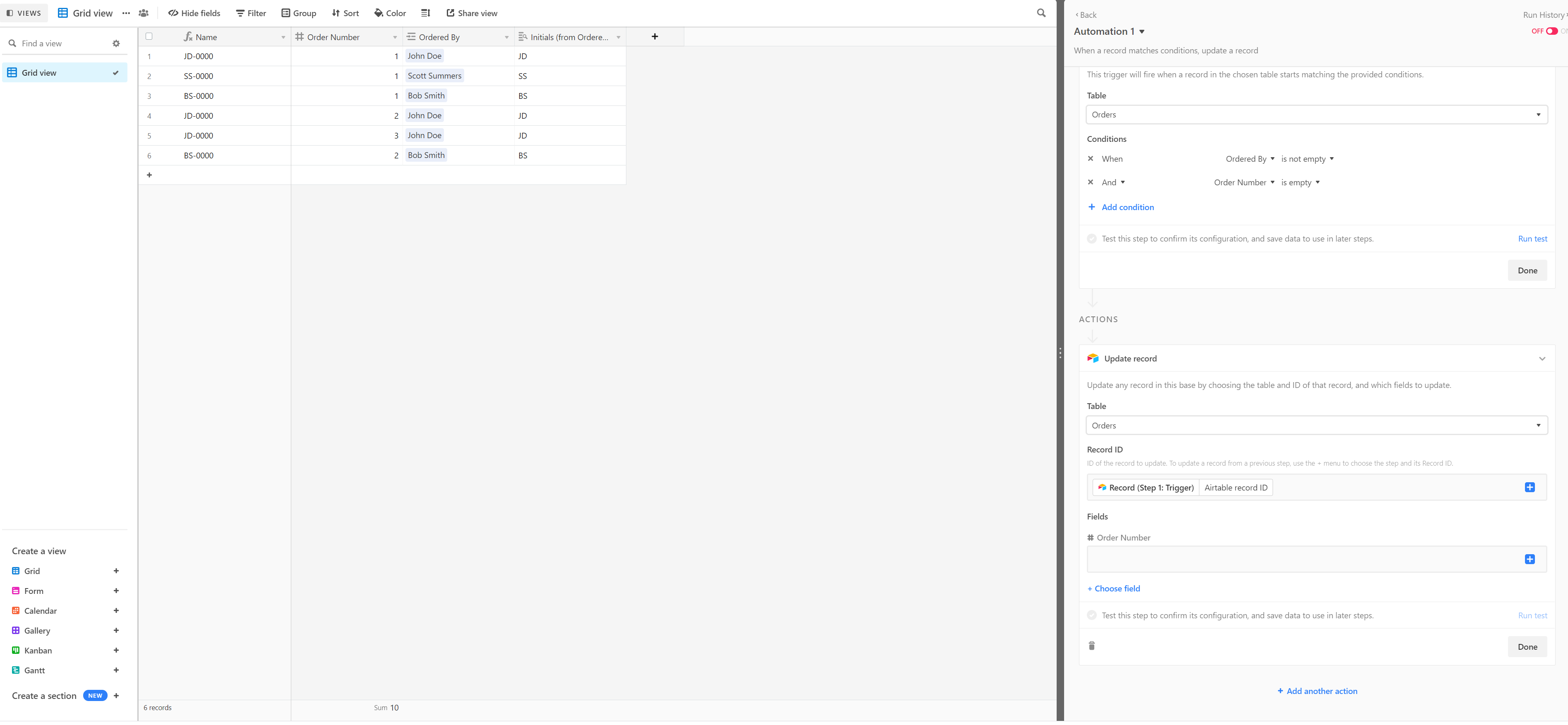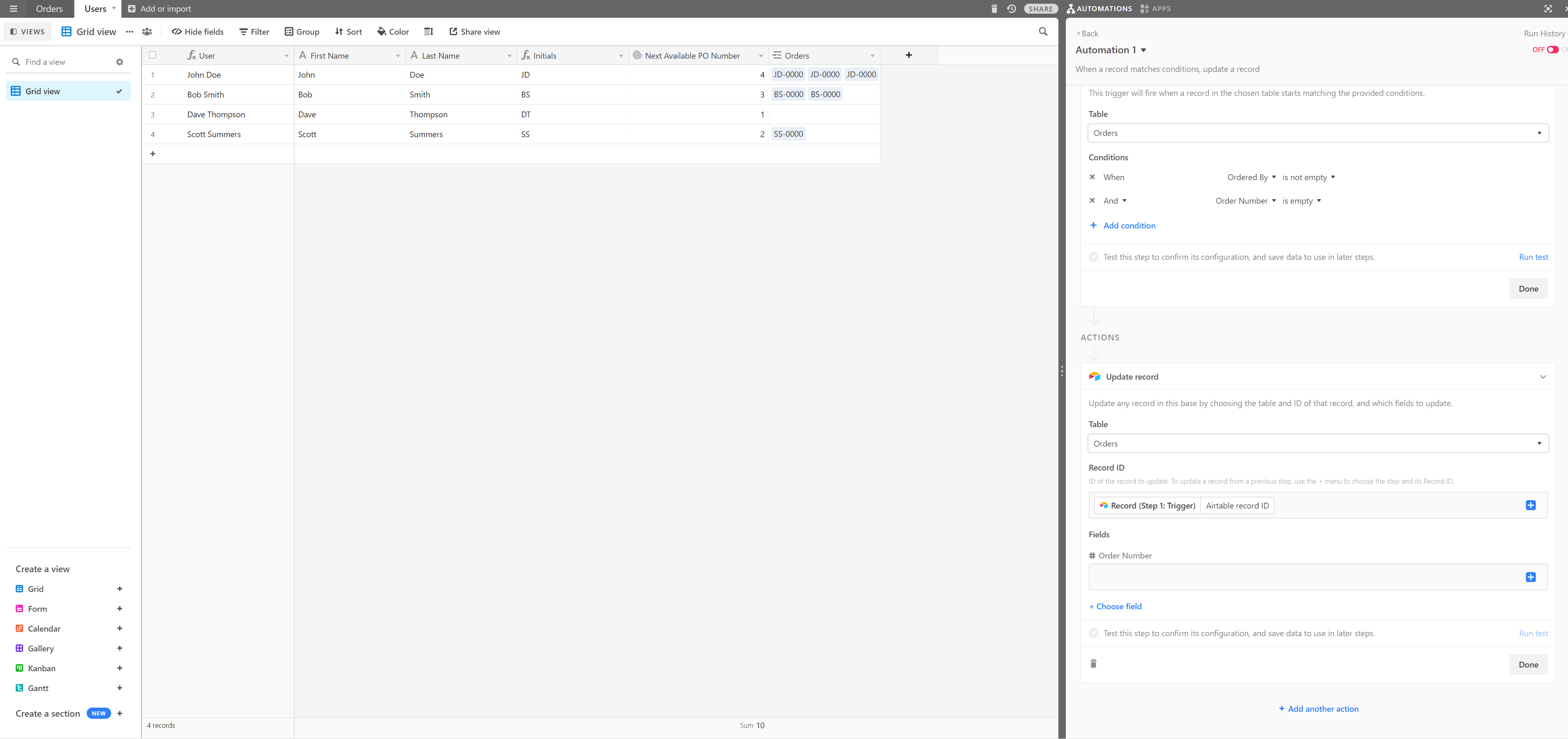Wondering if it is possible to run the auto-number column, but conditional on another column. We are setting up a purchase order tracking log, and I would like things to autonumber based on the field for who is doing the ordering. So if Steve goes in to create 3 separate orders, he picks “Steve” from the single-select dropdown field “Ordered By” and then he gets a sequence of auto-numbers. For his 3 orders, he would get 1, 2, and 3 (I would have the key column by a formula that creates a unique ID based on “Ordered By” and the Autonumber, so it would probably be “Steve001”, Steve002", “Steve003”, etc etc).
If Dave then goes in and enters an order for himself, what we would like is for the auto-numbering to restart for the new single-select entry “Dave” so that Dave’s first entry would get an autonumber “1” again, and the key field would be “Dave001”. If steve then goes to do another entry, he would get “Steve004”.
So far, I am not seeing how to do this (or if it can be done). I realize that sharing the autonumber will still create unique IDs for each order, but part of the problem we are trying to solve is for people out in the field to know that they have their own set of numbers and if they need to place an order with their vendor but are not near the computer, then just have to remember the last available number in sequence to give a PO # to the vendor. If everyone shares, then you never really know what the next available number is since anyone could take it.
Any help on this appreciated.
Thanks





